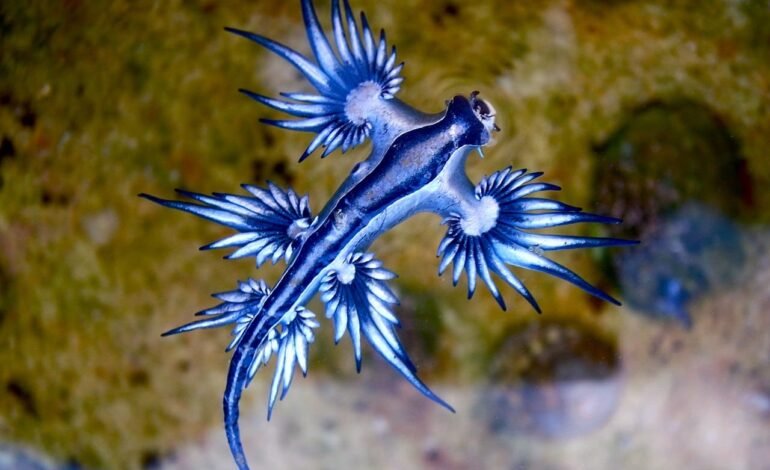Blue dragon sea slug shuts down Spanish beach

Beaches in the southeastern Spanish town of Guardamar del Segura had to close after a pair of venomous blue dragon sea slugs were found in the waters, local authorities revealed. “All swimming on all municipal beaches” was banned “until a new order,” the local police force said in a Facebook post.
The blue dragon, as it is colloquially named, is no more than 3 cm (1.2 inches) long. But because it feeds on venomous animals, including the Portuguese man o’ war, and recycles and concentrates its venom, it is able to paralyse prey that is 300 times its size.
“Contact with this marine animal can be dangerous and provoke painful burns on the skin,” police said. Beachgoers, it added, should “take extreme caution and avoid direct contact with those that could appear on the sand.”
The ban was lifted within days with swimming being once again allowed on the beach. But authorities still advise caution for anyone wishing to get into the waters. José Luis Sáez, the town’s mayor, told the public to notify authorities if they saw a blue dragon and to avoid touching it, even while wearing gloves. Anyone stung, he added, should rinse the affected area with saltwater and seek medical attention.
The Mediterranean coastline around Alicante, thanks to its sunny climate, rocky cliffs, and selection of beaches, is among the country’s most popular tourism hotspots.
The blue dragon is a rare sight in the Mediterranean. It is more likely spotted around the temperate and tropical waters around the Atlantic, Pacific, and Indian oceans where ocean currents and the wind carries it along.
Stay tuned to EyeOnLondon for the latest news and expert opinions.
Image: Sylke Rohrlach from Sydney
Follow us on:
Subscribe to our YouTube channel for the latest videos and updates!
We value your thoughts! Share your feedback and help us make EyeOnLondon even better!









